Se7en Questions with Filmmaker
Itai Guberman
Who are some of the artists or some of the works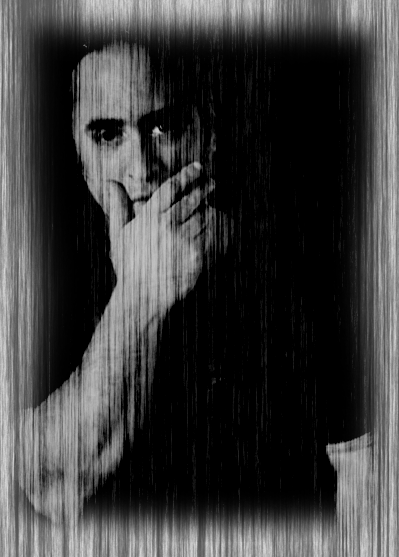 that inspired you to get started in this field? Of today’s current artists, who do you draw inspiration from?
that inspired you to get started in this field? Of today’s current artists, who do you draw inspiration from?
As a young kid watching films which seemed larger than life, I was less aware of the people behind the camera and more aware of actors. The field of cinema hooked me in early due to the likes of Gene Hackman, Steve McQueen, Burt Lancaster, Jean-Paul Belmondo, Yul Brynner, Claudia Cardinale, James Coburn, Kirk Douglas, Henry Fonda, Richard Harris, Jean-Louis Trintignant, Alain Delon, Angie Dickinson, Shirley MacLaine, Lee Can Cleef, Max Von Sydow, Lee Marvin and many others. I could recite their filmography on command. Where did all that information go? I guess it’s less useful in the days of Wikipedia and IMDb.
Once I became more aware of the people behind the camera, I became interested in the works of Sergio Leone, Sam Peckinpah, Krzysztof Kieslowski, John Ford, Sidney Lumet, John Sturges, Stanley Kubrick and Mel Brooks, among others.
As far as movies, I was greatly intrigued by films such as The Magnificent Seven (1960), Blade Runner (1982), The Warriors (1979), 2001: A Space Odyssey (1968), The Shining (1980), The Conformist (1970), The Maltese Falcon (1941) and a slew of Westerns.
In the past decade or so, directors like The Duplass Brothers, Joe Swanberg and Andrew Bujalski helped me see that it is possible to make great films with simple scripts and very small budgets.
Of directors working today, I have much appreciation and take great interest in the likes of Paul Thomas Anderson, Denis Villeneuve, Olivier Assayas, The Coen Brothers, David Fincher, Quentin Tarantino and more.
What have thus far been some of the negatives of being an indie artist in your field?
The biggest negative, in my mind, is the inability to sometimes secure funding for our projects. It is very difficult to make a living as a filmmaker and when you’re not making any income from film AND need to find money yourself (largely meaning, funding projects out of your own pocket), it can make life very difficult.
Others are the difficulties involved with reaching a large enough audience and the lack of general support. But I mainly use those as a motivating force.
What have thus far been the positives of being an indie artist in your field?
The positives are mainly the people you meet, who much of the time also become friends, or brothers in arms in some cases. Also, the freedom and self-fulfillment. The creative outlet is the main thing that keeps me going.
What have been your favorite completed projects to work on up to this point? Can you tell us a little bit about them?
I have, thus far, greatly enjoyed all the projects I’ve made. I have a special place in my heart for the first short film I ever made, a crime-comedy called The Collector (co-written with Peter Angel and co-directed with Thanassi Panagiotaras). It was at that time I first proved to myself that I have the ability to make interesting films that might have value to some people.
The Bruised Spring’s Teens, my wacky comedy web series, was likely the most fun to make but also bittersweet with the recent passing of one of our two actors, the late Tomer Shechori.
Third Temple, a political thriller I co-wrote and co-directed with Asaf Angel, was a great way to unleash some personal world views and do something that we hope would get people thinking.
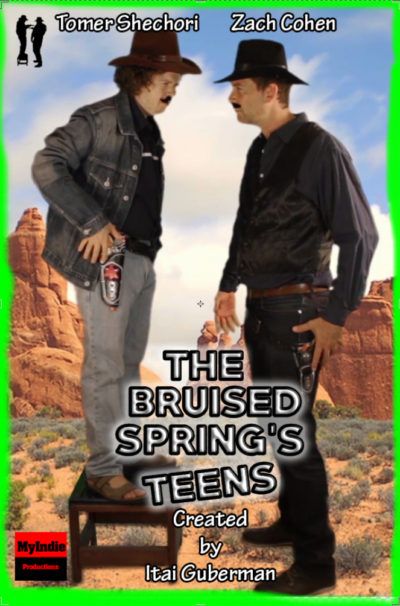
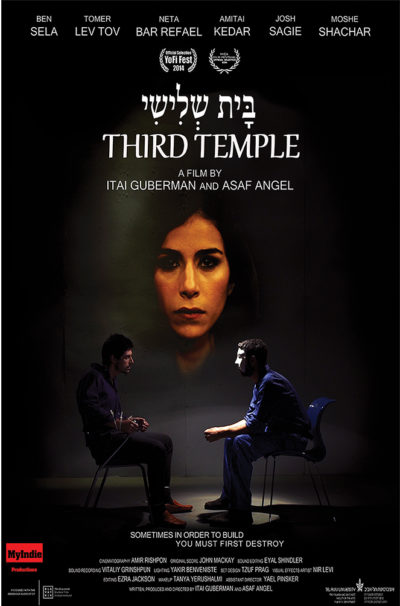
My most recent short, Ivy, has experienced some amazing success on the festival circuit and is part of a feature we are now working on (Revelation, a post-apocalyptic horror-drama-thriller due to be completed in 2019 – now unfortuantely pushed all the way to 2021), so it holds great importance for me as well.
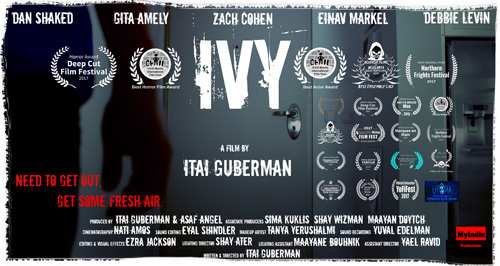 What projects are you currently working on or have planned for the near future?
What projects are you currently working on or have planned for the near future?
Next, I am working on a feature-length horror-drama, called Revelation. It is, by far, the greatest undertaking I have taken on to date. It is due to be completed in late 2019 (now 2021).
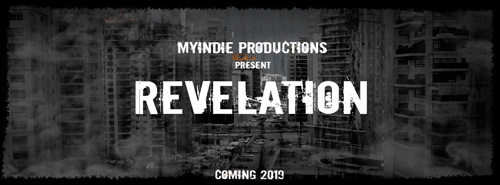 Where do you see yourself in a few years and what would it take for you to consider your career a success?
Where do you see yourself in a few years and what would it take for you to consider your career a success?
I already consider myself to be a success, as I feel that I have finally found my calling and am greatly enjoying the artistic outlet. However, over the next few years, I hope to find a way to make a decent living from film production so that I can continue to do it for as long as I can.
Another thing I feel very passionate about is creating an Independent Arts Community through MyIndie Productions, where I can do all that I can to help other indie artists “do their thing” as well. If I make that happen, the success would be that much sweeter.
If you couldn’t do this anymore, what career path do you think you would have followed and why?
I have a Business Degree, so I think I would probably have gravitated towards that area and started a Business Consulting firm of some sort. Otherwise, I might have gone into the area of Psychology in some way.







